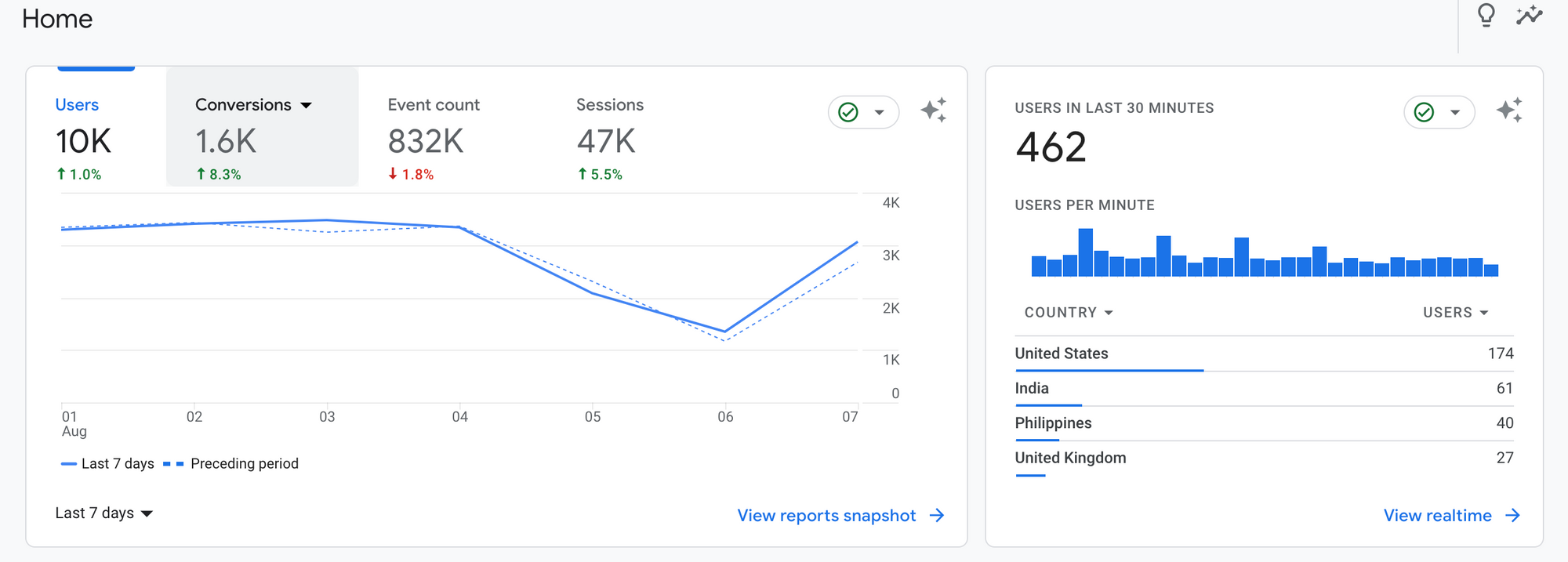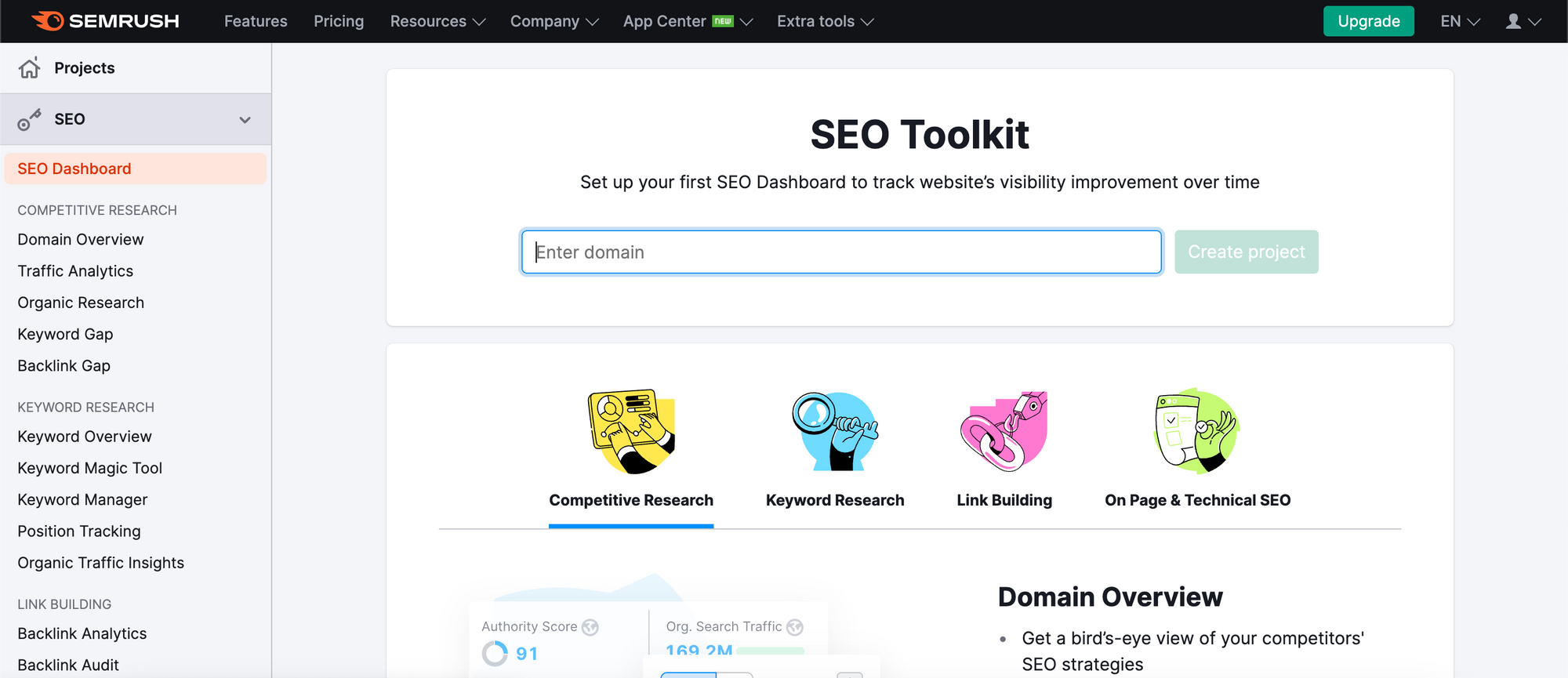Content Marketing Metrics to Track: Let the Data Decide Your Growth

Successful content marketing involves a well-thought-out plan for your content, clear goals, and regularly checking how well it's working. No matter how well you write, the real measure of your content is the impact it has on your business.
To start figuring out how well your content is doing, you need to pay attention to the right things. In this article, we'll look at five important groups of numbers that can help you see how much your business benefits from the content you create.
Keep reading until the end of the article, and you'll also find out about some other important numbers to keep track of for your content.
But first, let's start with the basics-
What is Content Marketing?
Content marketing is a strategic approach to marketing that focuses on creating and distributing valuable, relevant, and consistent content to attract and engage a target audience. Instead of overtly promoting products or services, content marketing aims to provide valuable information, insights, entertainment, or education that addresses the needs and interests of the audience. This approach builds trust, establishes authority, and fosters long-term relationships between brands and their customers.
Content marketing takes various forms, including blog posts, articles, videos, infographics, podcasts, social media posts, whitepapers, eBooks, and more. The content is tailored to resonate with the audience, deliver value, and align with the brand's messaging and values. Through strategic distribution and promotion, content marketing helps brands connect with their audience at different stages of the customer journey, from awareness and consideration to conversion and loyalty.
Also Read: Content Marketing Glossary: 50+ Terms You Need to Know About
Why is it Important to Track Key Metrics?
Tracking key metrics in content marketing is essential for several compelling reasons:
Measuring Effectiveness: Content marketing efforts require a significant investment of time, resources, and creativity. By tracking metrics, businesses can assess the effectiveness of their content in achieving specific goals, whether it's increasing brand awareness, driving website traffic, generating leads, or boosting sales.
Data-Driven Decision Making: Metrics provide valuable data-driven insights that guide content creation, distribution, and optimization strategies. Analyzing metrics helps marketers understand what types of content resonate most with their audience, which platforms are performing best, and how to refine their approach for better results.
ROI Assessment: Content marketing's impact on the bottom line can be challenging to quantify directly. However, tracking key metrics allows businesses to estimate the return on investment (ROI) by correlating content efforts with tangible outcomes, such as increased sales, higher customer retention, or reduced customer acquisition costs.
Adaptability and Agility: The digital landscape evolves rapidly, and audience preferences can shift over time. Monitoring metrics helps marketers stay agile and adapt their content strategies to changing trends, preferences, and technologies.
Optimizing Resources: Limited resources should be allocated where they yield the most significant results. By tracking metrics, marketers can identify high-performing content, platforms, and campaigns, enabling them to allocate resources more effectively and efficiently.
Demonstrating Value: Clear and quantifiable results enhance the credibility of content marketing efforts within an organization. Metrics provide concrete evidence of how content contributes to business goals and justifies the investment in content creation and distribution.
Continuous Improvement: Content marketing is an iterative process. Regularly tracking metrics allows marketers to identify areas for improvement, experiment with new approaches, and refine their content strategy over time.
Now let's explore the important content marketing metrics that you should track in 2023 to keep a tab on your growth.
Website Traffic and Engagement Metrics
1.1. Pageviews: Monitor the total number of views your content receives. This metric provides an overall view of content popularity and can guide your content creation strategy.
1.2. Unique Visitors: Track the number of distinct individuals who visit your content. This metric indicates the size of your audience and helps you understand how effectively you're reaching new visitors.
1.3. Bounce Rate: This metric reveals the percentage of visitors who navigate away from your site after viewing only one page. A high bounce rate may indicate content relevancy issues or slow loading times.
1.4. Average Session Duration: Measure how long visitors spend on your site. A longer session duration suggests that your content is engaging and valuable to your audience.
Social Media Metrics
2.1. Shares, Likes, and Comments: Count the number of times your content is shared, liked, and commented on social media platforms. These interactions showcase the virality and resonance of your content.
2.2. Follower Growth: Monitor the growth in your social media followers. An increasing follower count indicates that your content resonates with your target audience.
2.3. Engagement Rate: Calculate the percentage of your followers who engage with your content through likes, shares, comments, and clicks. A higher engagement rate signifies a strong connection with your audience.
Also Read: LinkedIn Glossary: All LinkedIn Terms You Need to Know About
SEO Metrics
3.1. Organic Traffic: Track the number of visitors who arrive at your website through organic search results. An upward trend indicates that your content ranks well and attracts relevant traffic.
3.2. Keyword Rankings: Monitor how your content ranks for specific keywords. Improvements in rankings demonstrate the effectiveness of your SEO efforts.
3.3. Backlinks: Keep an eye on the number and quality of backlinks your content generates. Quality backlinks can enhance your website's authority and visibility in search engines.
Also Read: The Ultimate Marketing Guide: 80+ ChatGPT Prompts for Success
Conversion Metrics
4.1. Conversion Rate: Measure the percentage of visitors who complete a desired action, such as signing up for a newsletter, downloading an eBook, or making a purchase. This metric directly reflects the effectiveness of your content in driving user actions.
4.2. Lead Generation: Track the number of leads generated through your content. This metric helps assess the impact of your content on your sales funnel.
Email Marketing Metrics
5.1. Open Rate: Monitor the percentage of recipients who open your emails. A higher open rate indicates that your email subject lines and content are compelling.
5.2. Click-Through Rate (CTR): Calculate the percentage of recipients who click on links within your emails. A higher CTR suggests that your content is relevant and engaging.
5.3. Unsubscribe Rate: Keep an eye on the number of recipients who unsubscribe from your emails. A high unsubscribe rate may indicate that your content is not meeting their expectations.
The Best Analytics Tools for Tracking Content Marketing Metrics
Let's explore some of the best analytics tools that can empower you to track your content marketing metrics effectively.
Google Analytics: A Trailblazer in Website Insights

Google Analytics stands as a foundational tool for content marketers. Its robust capabilities allow you to track metrics like pageviews, unique visitors, bounce rates, and average session durations. This tool gives you a comprehensive view of your website's performance and user behavior, allowing you to fine-tune your content strategy based on real data.
SEMrush: Unveil Your Competitive Edge

SEMrush is a versatile tool that extends beyond content performance analysis. It offers detailed insights into organic and paid search performance, keyword rankings, and backlink data. By understanding how your content ranks and competes in the search landscape, you can optimize your strategy to attract more organic traffic.
BuzzSumo: Unearth Content Trends and Engage Audiences
BuzzSumo focuses on content discovery and engagement analysis. By identifying the most shared and engaging content on social media platforms, you gain a deeper understanding of what resonates with your audience. This knowledge empowers you to craft content that captures attention and sparks conversations.

Ahrefs: Elevate Your Content with SEO Insights
Ahrefs is a powerful SEO tool that provides comprehensive insights into your website's organic search traffic, keyword rankings, and backlink profile. By monitoring these metrics, you can optimize your content for search engines and stay ahead of your competition.

HubSpot: All-in-One Marketing Insights
HubSpot offers an integrated suite of marketing tools, including content performance tracking. You can monitor website traffic, conversions, and engagement metrics, all while seamlessly managing your leads and contacts in one platform.

Buffer: Social Media Insights at Your Fingertips
While primarily known as a social media management tool, Buffer also provides valuable analytics features. You can track social media engagement, reach, and interactions, allowing you to gauge how your content performs across different platforms.

Mailchimp: Illuminate Your Email Marketing Success
Mailchimp is a go-to tool for email marketing metrics. It helps you track open rates, click-through rates, subscriber growth, and more. With these insights, you can refine your email campaigns for maximum impact.

Adobe Analytics: Enterprise-Grade Insights for Content Excellence
If you're operating at an enterprise level, Adobe Analytics offers advanced capabilities. This tool delves deep into user behavior, segmentation, and content performance across various channels, providing comprehensive insights to guide your content strategy.

Conclusion
Effective content marketing goes beyond just creating and publishing content; it involves measuring and analyzing key metrics to optimize your strategy for better results. By tracking website traffic and engagement metrics, social media metrics, SEO metrics, conversion metrics, and email marketing metrics, you gain valuable insights into what's working and what needs improvement. Remember that the most valuable metrics may vary depending on your business goals and industry. Regularly monitoring these metrics and adjusting your content strategy accordingly will lead to more successful content marketing campaigns and ultimately drive business growth.